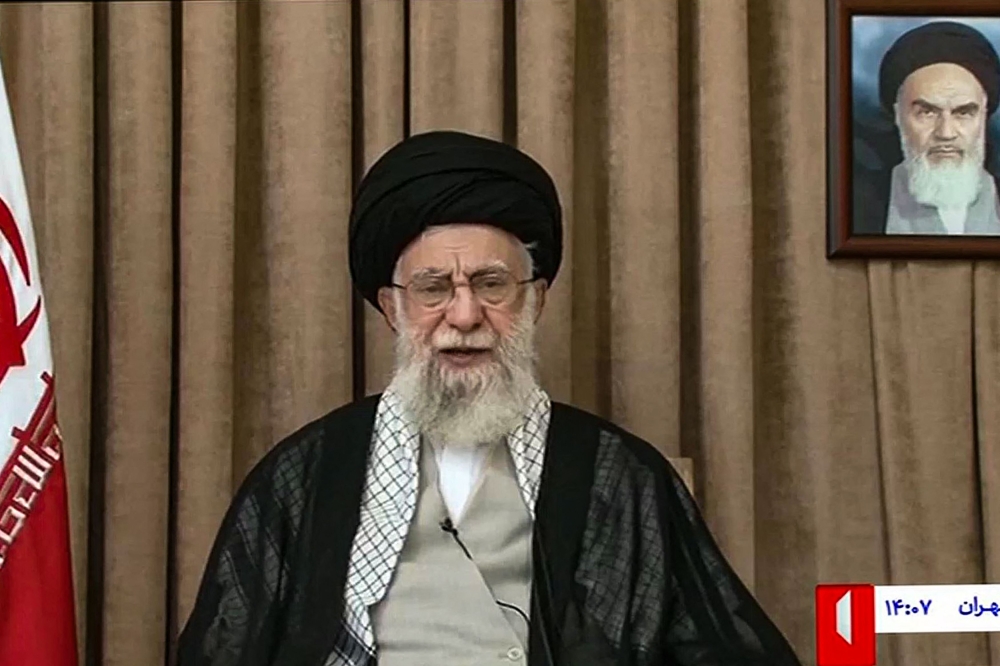JUNE 28 — In a world marked by sanctions, suspicion, and soundbites, the idea that Xi Jinping, Donald Trump, Ayatollah Khamenei, and Anwar Ibrahim could ever get along may seem far-fetched. But it is not impossible. The world has long misunderstood the difference between ideological differences and strategic necessity. In an era of multipolar competition and post-normal crises, the ability to disagree without destabilizing the global order is no longer a luxury—it is a prerequisite.
The answer to whether these four leaders can find common ground is “yes”—but only if the world learns to value strategic civility over ideological conformity. And only if we recognize the role of strategic convenor powers—like Malaysia under Anwar Ibrahim—in brokering spaces where dialogue, not dogma, prevails.
Four leaders, four civilizational trajectories
Xi Jinping leads a China determined to reclaim its historical stature through the revival of Confucian governance principles, Party supremacy, and economic statecraft. China’s global posture is one of confidence—sometimes defiant, but often methodical.
Donald Trump, back in office, rules through disruption. His foreign policy may seem erratic, but there is a pattern: transactionalism, spectacle, and a preference for leverage over long-term entanglements. While he loathes multilateralism, he is not instinctively drawn to war either. He wants deals—big, visible, and beneficial to domestic constituencies.
Ayatollah Khamenei, presiding over a beleaguered but resilient Islamic Republic, blends revolutionary theology with geopolitical pragmatism. Despite decades of sanctions and confrontation, Tehran has always kept a channel open for diplomacy—when treated with dignity.
And Anwar Ibrahim—a Muslim democrat, intellectual, and reformer—brings moral clarity without moral posturing. He is not just the Prime Minister of Malaysia; he is Asean’s most articulate proponent of civilizational dialogue, advocating for coexistence between Islam, the West, and the Confucian East. His track record shows a consistent commitment to rule-based order, justice, and multilateralism anchored in ethics.
When strategic interests overlap, so can leaders
What connects these four leaders is not their personal affinity but their converging interests. All four, for different reasons, now operate in a world where overreach brings blowback, and where the line between strategic deterrence and economic disaster grows thinner by the day.
Trump wants trade wins and less global policing. He remains open to deals that avoid new wars, especially if they burnish his legacy and strengthen U.S. industry.
Xi seeks global stability to ensure China’s continued rise. Tensions with the U.S. must be managed, not escalated. A rare earth agreement with Washington was recently signed—proof that economic logic can prevail over decoupling rhetoric.
Khamenei, behind the veil of defiance, sees value in a stable regional order. Iran’s pivot eastward, especially toward China and Asean, reflects a desire to diversify diplomacy and find breathing room from Western isolation.
Anwar, more than any other, recognizes that leadership today means navigating contradictions, not escaping them. Under his stewardship, Malaysia is stepping up as a strategic convenor power—offering a rare neutral space for diplomacy between conflicting blocs.
The post-normal world needs convenors, not commanders
In this post-normal world—characterized by chaos, contradiction, and complexity—what is urgently missing is not hard power, but bridging power. Countries that can bring opposing sides together without being seen as biased are crucial.
This is where Malaysia’s role as a strategic convenor power becomes indispensable. Malaysia does not lecture. It listens. It does not impose. It hosts. Its voice resonates across the Islamic world, the Global South, and East Asia—not because it is large, but because it is trusted.
The Asean Regional Forum, the East Asia Summit, and now growing Asean-GCC-China trilateral dialogues all reflect Malaysia’s convening capacity. Anwar’s proposal to address global problems through neutral ASEAN mediation, or to build a global moral coalition against Islamophobia and Sinophobia, are not fringe ideas—they are blueprints for how strategic convenors should behave in the 21st century.
Lessons from Asean’s quiet success
The Asean model, for all its imperfections, thrives on strategic civility—a concept the West often mistakes for weakness. ASEAN has shown how ten countries with vastly different systems can pursue consensus, non-interference, and cooperative security without military blocs or coercion.
This “Asean way,” when applied globally, indeed, turned into Asean Will, could moderate the extremes of U.S. unilateralism, Chinese assertiveness, and Iranian resistance. But for that to happen, countries like Malaysia must be given the diplomatic space to facilitate, not just participate.

Ayatollah Khamenei, presiding over a beleaguered but resilient Islamic Republic, blends revolutionary theology with geopolitical pragmatism. — AFP pic
Toward a new diplomatic quadrilateral
Can Xi, Trump, Khamenei, and Anwar sit at the same table—perhaps not literally, but diplomatically? If the terms are mutual respect, economic stability, and non-imposition of political systems, the answer is yes.
China wants a stable periphery and global markets.
The U.S. wants reduced costs and visible wins.
Iran wants security guarantees and economic inclusion.
Asean—led by Malaysia—wants a world where small states are not trampled by the rivalry of giants.
It is not only possible, but necessary, for this emerging diplomatic quadrilateral to form.
Conclusion: Replacing clash with convening
The time of zero-sum diplomacy is over. No single power—American, Chinese, or Islamic—can impose its version of order without backlash.
What the world needs are strategic convenor powers that can host the moral imagination of all civilizations, offering an architecture of dialogue when architecture of dominance is crumbling.
Anwar, by not siding with any ideological camp, but standing for values rooted in justice and dignity, is uniquely placed to midwife this new order.
Yes, Xi, Trump, Khamenei, and Anwar can get along—if the rest of us choose convening over coercion, civility over confrontation, and realism rooted in respect.
* Phar Kim Beng is Professor of Asean Studies at the International Islamic University Malaysia and a former Head Teaching Fellow at Harvard University.
** This is the personal opinion of the writer or publication and does not necessarily represent the views of Malay Mail.






